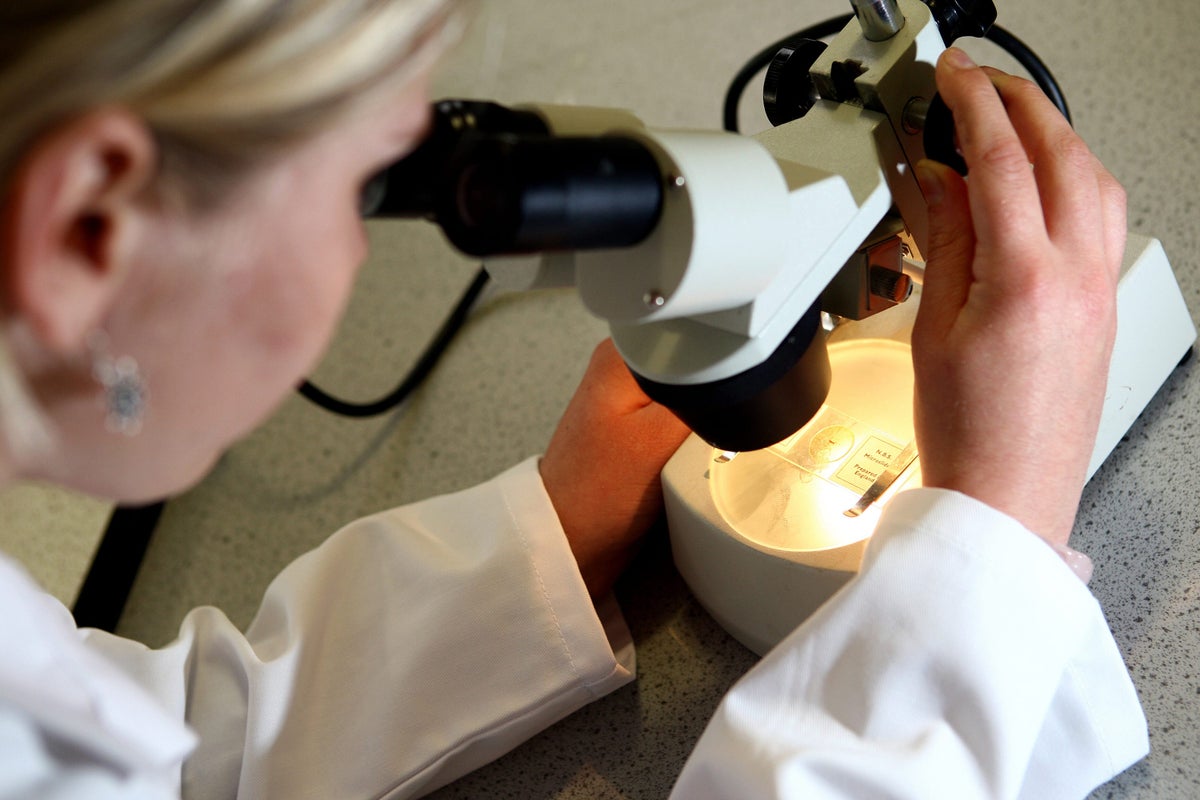
Researchers have made a “massive step forwards” with the discovery of a major cause of inflammatory bowel disease (IBD), as well as finding that existing drugs could be used to treat the condition.
IBD is the umbrella term for Crohn’s disease and ulcerative colitis, and these diseases are becoming more common, with more than half a million people living with IBD in the UK as of 2022, nearly double the 300,000 previously estimated.
Current treatments do not work in every patient and attempts to develop new drugs are often unsuccessful because of a lack of understanding about what causes IBD.
In the study, researchers at the Francis Crick Institute, working with UCL and Imperial College London, found a section of DNA that is only active in some immune cells that are known to cause inflammation in the bowels.
There are no drugs that block this specifically but ones prescribed for other non-inflammatory conditions were predicted to be effective.
I am hopeful this could potentially make a difference for myself and so many other hundreds of thousands of people living with IBD— Lauren Golightly
When tested, the medication not only reduced inflammation in the immune cells but also in gut samples from patients with IBD.
However, this medication has side effects in other organs and the researchers are now working to find ways to deliver it directly to immune cells.
Lauren Golightly, 27, was diagnosed with Crohn’s disease in 2018 after experiencing stomach cramps, blood in her poo and irregular bowel habits.
She said: “Crohn’s has had a huge impact on my life. I’ve had a rocky road since diagnosis, with many hospital admissions, several different medications and even surgery to have a temporary stoma bag.
“One of the hardest things about having Inflammatory Bowel Disease (IBD) is the uncertainty around it.
“I still experience flare-ups and can still spend quite a bit of time in hospital. Learning about this research is so exciting and encouraging.
“I am hopeful this could potentially make a difference for myself and so many other hundreds of thousands of people living with IBD.”
Immune cells called macrophages are known to be important in IBD. The researchers found the area of the DNA that is linked to inflammation in these cells, providing a potential target for treatment.
James Lee, group leader of the Genetic Mechanisms of Disease Laboratory at the Crick, and consultant gastroenterologist at the Royal Free Hospital and UCL, who led the research, said: “IBD usually develops in young people and can cause severe symptoms that disrupt education, relationships, family life and employment. Better treatments are urgently needed.
“Using genetics as a starting point, we’ve uncovered a pathway that appears to play a major role in IBD and other inflammatory diseases.
“Excitingly, we’ve shown that this can be targeted therapeutically, and we’re now working on how to ensure this approach is safe and effective for treating people in the future.”
Christina Stankey, PhD student at the Crick, and co-first author, said: “IBD and other autoimmune conditions are really complex, with multiple genetic and environmental risk factors, so to find one of the central pathways, and show how this can be switched off with an existing drug, is a massive step forwards.”
Volunteer participants from the NIHR BioResource, with and without IBD, provided blood samples that contributed to the study.
The research, published in Nature, was funded by Crohn’s and Colitis UK, the Wellcome Trust, the Medical Research Council and Cancer Research UK, and the academics worked with collaborators across the UK and Europe.







